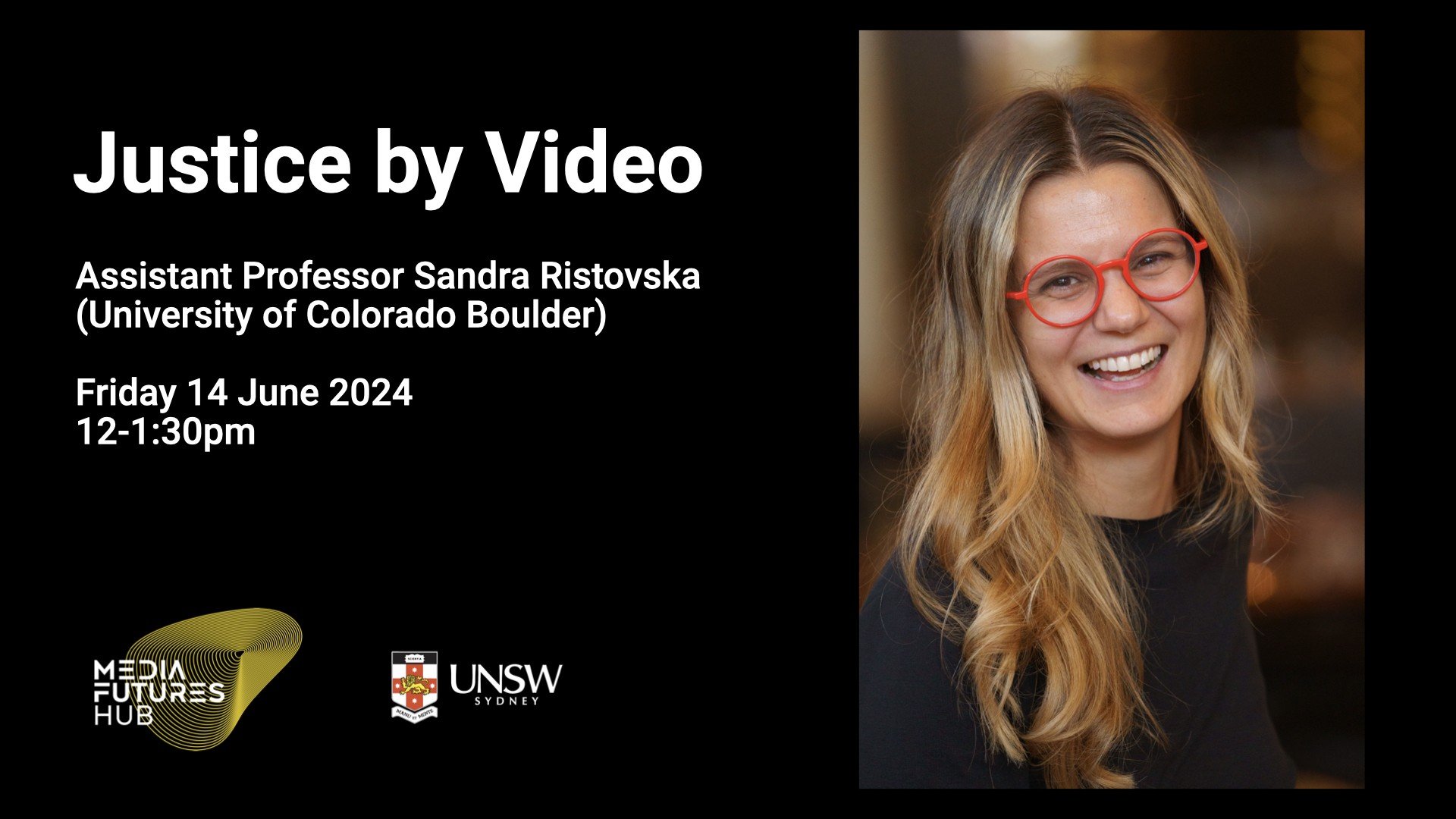Friday 14 June 2024
12:00-1:30pm (AEST)
Robert Webster 334 (in person only)
From cell phones to police body cameras, today’s courts increasingly use video as evidence. A common assumption is that video can help people bear witness to an event as if they themselves were transported to the complicated scene of its unfolding. Rather than the second-hand testimony provided by eyewitnesses, video is assumed to offer an unmediated and firsthand account directly to the decision maker. As a result, U.S. courts, at all levels, lack safeguards to ensure rigorous visual analysis, an issue that is further amplified with the rise of generative AI and deepfakes. Drawing on research conducted during residency with the American Bar Association’s Science and Technology Law Section, this lecture considers the intricacies of using video to bear witness in court. It argues that without consistent guidance and applications for treating video as evidence, human rights and civil rights may be disparately recognized and upheld.
Sandra Ristovska is Assistant Professor of Media Studies and Law at University of Colorado Boulder. Her research examines how, under what circumstances, and to what ends images shape the pursuit of justice and human rights in institutional and legal contexts nationally and internationally. Her publications include the award-winning monograph, Seeing Human Rights: Video Activism as a Proxy Profession (The MIT Press, 2021), an edited book, Visual Imagery and Human Rights Practice (Palgrave, 2018), and over two dozen journal articles and book chapters. Her work has received multiple awards from the International Communication Association (ICA), the International Association for Media and Communication Research (IAMCR), and the National Communication Association (NCA).
This talk is hosted by the UNSW Media Futures Hub.
Registration is not required but does help us in event planning. See link below:

